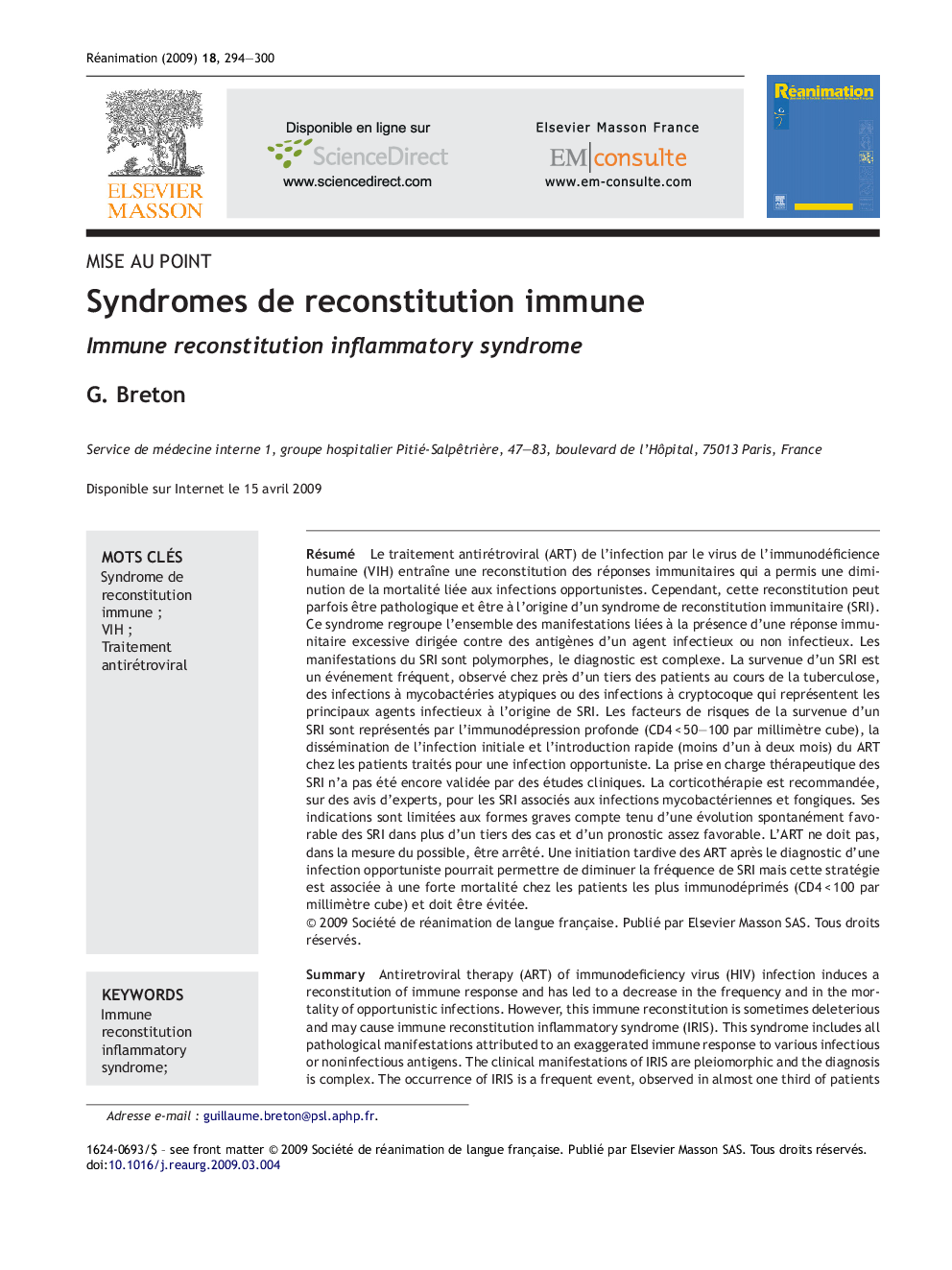| Article ID | Journal | Published Year | Pages | File Type |
|---|---|---|---|---|
| 2611982 | Réanimation | 2009 | 7 Pages |
Abstract
Antiretroviral therapy (ART) of immunodeficiency virus (HIV) infection induces a reconstitution of immune response and has led to a decrease in the frequency and in the mortality of opportunistic infections. However, this immune reconstitution is sometimes deleterious and may cause immune reconstitution inflammatory syndrome (IRIS). This syndrome includes all pathological manifestations attributed to an exaggerated immune response to various infectious or noninfectious antigens. The clinical manifestations of IRIS are pleiomorphic and the diagnosis is complex. The occurrence of IRIS is a frequent event, observed in almost one third of patients during tuberculosis, Mycobacterium avium complex and cryptococcocal infections. The main risk factors of IRIS are represented by the severe immunodepression (CD4 < 50-100/mm3), the dissemination of the opportunistic infection, and the introduction of ART shortly (< 1-2 months) after the treatment of an opportunistic infection. The treatment of IRIS has not been validated by clinical studies. Steroids are recommended, on expert opinion basis, for the treatment of IRIS associated with mycobacterial and fungal infections. Steroids should be limited to severe manifestations considering the spontaneous favourable outcome observed in one third of cases and the favourable prognosis. ART should not, as possible, be stopped. ART deferment after the treatment of an opportunistic infection could be associated with a lower frequency of IRIS, however this strategy is associated with a higher mortality in the mot immunocompromised patients and should be avoided.
Related Topics
Health Sciences
Medicine and Dentistry
Emergency Medicine
Authors
G. Breton,
